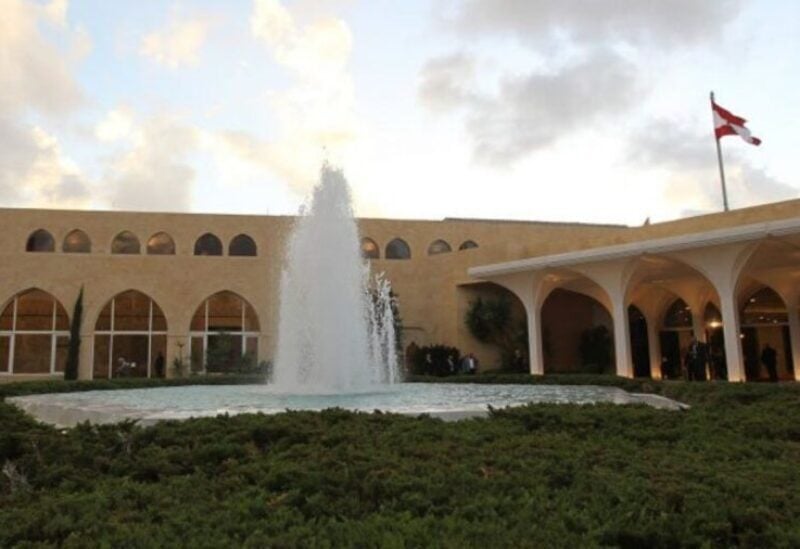
Baabda Palace
Presidency of the Republic’s sources reveal to “Sawt Beirut International” that they have been informed of the American mediator, Amos Hochstein’s desire, to come to Lebanon to resume his mediation over the negotiation to demarcate the maritime borders between Lebanon and Israel. They also reveal that Lebanon has not yet responded to the American proposal regarding the demarcation, as it needs to discuss with the Americans the points mentioned in the American proposal. Because Lebanon cannot dispense the Qana field, and it is not likely to accept getting half of this field. They indicate that Lebanon adheres to Line 29 in the negotiating sense, but in fact Israel does not accept that Lebanon’s maritime borders be at this line.
All parties concerned with the file of negotiations over the demarcation of the maritime border between Lebanon and Israel are awaiting the date and content of the Lebanese response to the American proposal on this issue, which was communicated to Lebanon by the American mediator for the demarcation, Amos Hochstein, about four months ago. Lebanon avoided responding before the parliamentary elections, so that this response would not be used in electoral campaigns and cause confusion. However, contrary to the authority’s stance, the Shiite duo deliberately used the issue of drilling in the sea in their parliamentary election campaign, and issued a series of escalating stances regarding the American mediation, giving it a month’s notice, otherwise Lebanon will start excavating. Hezbollah also threatened to use drones over any drilling ship working for Israel in the disputed area.
Now, after the arrival of the exploration vessel “Energy Power” to the “Karesh” field, negotiations over the delimitation have returned to the fore, after an actual stalemate that took control of the file. Now the elections are over, and Lebanon is supposed to resolve its affairs and respond quickly, especially since Washington is waiting for this response, and it is still enthusiastic about overcoming the obstacles to oil and gas exploration in the Lebanese sea, because of its positive repercussions on the financial and economic situation of the state and the Lebanese. This is confirmed by Western diplomatic sources to “Sawt Beirut International”. which say that the Lebanese response must be the result of synthesising the opinions of the Lebanese political parties, in light of the elections’ results, so that these forces have their voice, and that the previous majority should not control the response. With the sources pointing out that the party anticipated the official Lebanese response and sought to establish a new base of engagement that dealt with protecting the gas in the territorial waters, and that it had a role in that, especially working to benefit from its surplus power to push Israel to concede to Lebanon.
The sources noted that the stances taken previously by Lebanon, regarding the demarcation file, are more political than technical. It is usually associated with Hezbollah’s disregard of certain points or their failure to overlook them, all depending on the regional situation and the course of the US-Iranian negotiation on returning to the nuclear agreement. If the negotiation is easy, the party overlooks some conditions. But when the negotiations finally faltered, it started to re-raise the conditions to the fore. This is what happened when negotiations were raging positively between Washington and Tehran, Lebanon retracted the 29 demarcation line considering it a negotiating line. Now, when negotiations faltered, Lebanon returned to demand the Naqoura negotiations on the previously general framework approved by Parliament Speaker Nabih Berri, and demands for Line 29 returned.